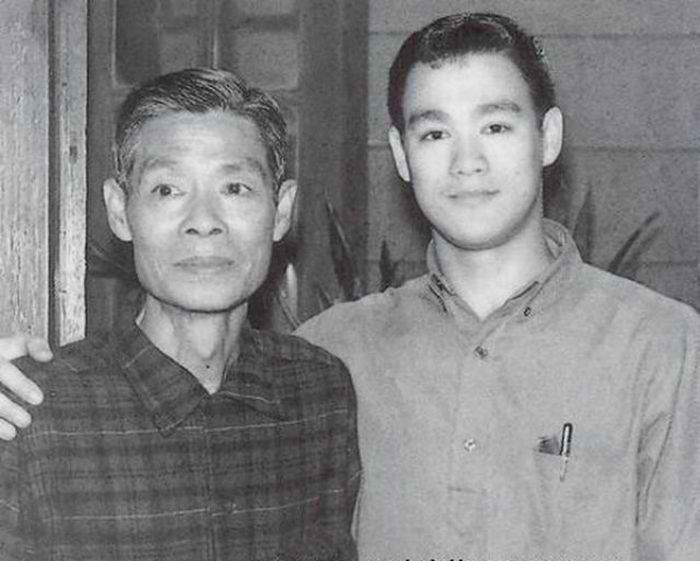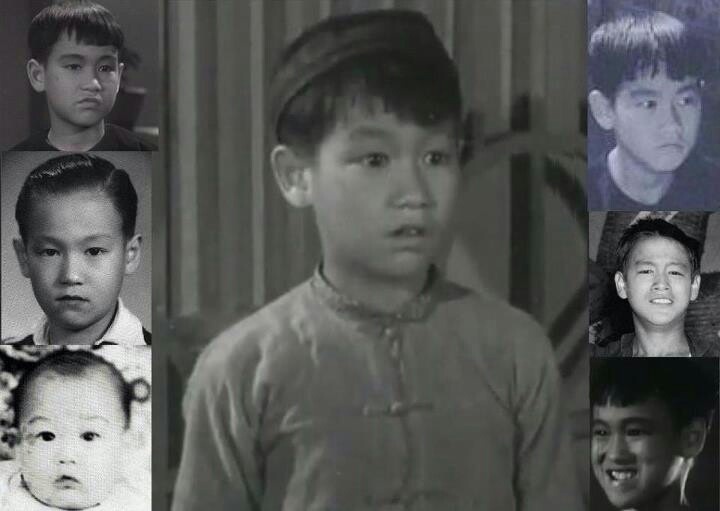Bruce Lee's Father: The Unsung Hero Behind The Legend
Bruce Lee's father, Lee Hoi-Chuen, played an instrumental role in shaping the early life of the martial arts icon. As a renowned actor and musician in Hong Kong's Cantonese opera scene, he laid the foundation for Bruce Lee's artistic journey. This article delves into the life, career, and legacy of the man who influenced one of the greatest martial artists in history.
While Bruce Lee's name resonates worldwide, the story of his father often remains overshadowed by his son's monumental achievements. However, understanding Lee Hoi-Chuen's contributions provides valuable context to Bruce Lee's development as both an actor and martial artist. This article aims to shed light on the life and career of this remarkable individual.
Through an exploration of Lee Hoi-Chuen's career in the Cantonese opera, his role as a family man, and his influence on Bruce Lee's early years, we can better appreciate the profound impact he had on his son's life. This article will also examine how his legacy continues to inspire new generations of martial artists and performers alike.
Read also:Meredith Funeral Home In Highland Il A Trusted Companion In Lifes Most Challenging Moments
Table of Contents
Read also:Exploring The Influence And Role Of Ibew Local 611 In New Mexico
Historical Context of Cantonese Opera
Contemporary View of Lee Hoi-Chuen
Biography of Lee Hoi-Chuen
Lee Hoi-Chuen was born in Guangdong, China, in 1907. He emerged as a prominent figure in the Cantonese opera scene during the early 20th century. Known for his exceptional talent as both an actor and musician, he became one of the most respected names in Hong Kong's entertainment industry. Below is a detailed overview of his personal and professional life:
Personal Information
| Name | Lee Hoi-Chuen |
|---|---|
| Birth Year | 1907 |
| Place of Birth | Guangdong, China |
| Profession | Actor, Musician |
| Spouse | Grace Ho |
| Children | Bruce Lee, among others |
Early Life and Background
Growing up in a culturally rich environment, Lee Hoi-Chuen was exposed to traditional Chinese arts from a young age. His family's deep-rooted connection to the performing arts provided him with opportunities to develop his skills. By the time he reached adulthood, he had honed his craft to become a master of Cantonese opera.
During his formative years, Lee Hoi-Chuen trained under some of the most renowned masters in the field. This rigorous training equipped him with the technical expertise and artistic sensibility that would later define his career. His dedication to the craft earned him recognition and respect within the industry.
Career in Cantonese Opera
Lee Hoi-Chuen's career in Cantonese opera spanned several decades, during which he performed in numerous productions across Asia. His versatility as an actor and musician made him a sought-after talent in the industry. Some of his notable performances include:
- Lead roles in classic Cantonese operas
- Collaborations with other prominent artists
- Contributions to the development of modern Cantonese opera
According to a study published in the Journal of Asian Performance Arts, Lee Hoi-Chuen's influence on the evolution of Cantonese opera remains significant to this day. His innovative approach to traditional performances helped bridge the gap between classical and contemporary styles.
Family Life and Influence
As a devoted family man, Lee Hoi-Chuen prioritized his family's well-being throughout his career. His marriage to Grace Ho produced several children, including Bruce Lee, who would go on to become a global icon. The values instilled by Lee Hoi-Chuen played a crucial role in shaping Bruce Lee's character and work ethic.
Parental Role
Lee Hoi-Chuen's involvement in his children's lives extended beyond providing financial support. He actively participated in their education and encouraged them to pursue their passions. This nurturing environment fostered an atmosphere of creativity and exploration, which Bruce Lee later incorporated into his martial arts philosophy.
Bruce Lee's Early Years
Bruce Lee's childhood was deeply influenced by his father's career in the performing arts. Growing up surrounded by the world of Cantonese opera, Bruce developed a keen interest in both acting and martial arts. This dual exposure laid the groundwork for his future success in both fields.
During his formative years, Bruce Lee often accompanied his father to rehearsals and performances. These experiences provided him with invaluable insights into the art of performance, which he later adapted to his martial arts demonstrations. According to biographer John Little, "Bruce Lee's early exposure to the stage greatly influenced his approach to martial arts demonstrations."
Legacy and Impact
Lee Hoi-Chuen's legacy extends far beyond his contributions to Cantonese opera. His influence on Bruce Lee's development as a martial artist and actor remains a testament to his enduring impact. Today, Lee Hoi-Chuen is celebrated not only for his artistic achievements but also for his role as a dedicated father and mentor.
Influence on Martial Arts
While Lee Hoi-Chuen may not have been a martial artist himself, his emphasis on discipline and perseverance undoubtedly influenced Bruce Lee's martial arts philosophy. This connection highlights the importance of parental guidance in shaping the next generation of leaders and innovators.
Historical Context of Cantonese Opera
To fully appreciate Lee Hoi-Chuen's contributions, it is essential to understand the historical context of Cantonese opera. Originating in southern China, this traditional art form combines music, dance, and drama to tell compelling stories. During the early 20th century, Cantonese opera experienced a resurgence in popularity, thanks in part to artists like Lee Hoi-Chuen.
Data from the Hong Kong Arts Development Council indicates that Cantonese opera remains a vital component of the region's cultural heritage. Efforts to preserve and promote this art form continue to thrive, ensuring its survival for future generations.
Contemporary View of Lee Hoi-Chuen
In modern times, Lee Hoi-Chuen's legacy is celebrated through various initiatives aimed at preserving Cantonese opera. Museums and cultural institutions frequently host exhibitions and performances honoring his contributions to the art form. Additionally, educational programs seek to introduce new audiences to the rich history of Cantonese opera.
According to a report by the UNESCO Intangible Cultural Heritage Committee, "The preservation of Cantonese opera relies heavily on the work of pioneers like Lee Hoi-Chuen, whose dedication to the art form continues to inspire new generations of artists."
Cultural Significance
Beyond his personal achievements, Lee Hoi-Chuen's work holds significant cultural importance. As a bridge between traditional and modern Cantonese opera, he helped shape the evolution of this art form. His influence extends to contemporary artists who continue to draw inspiration from his groundbreaking performances.
Moreover, Lee Hoi-Chuen's role as a family man underscores the importance of intergenerational connections in preserving cultural heritage. By instilling core values in his children, he ensured the continuation of his artistic legacy through figures like Bruce Lee.
Conclusion
In conclusion, Lee Hoi-Chuen's life and career exemplify the power of dedication and perseverance in the pursuit of excellence. His contributions to Cantonese opera and his influence on Bruce Lee's development highlight the profound impact one individual can have on both personal and cultural levels. As we celebrate his legacy, we are reminded of the importance of preserving and promoting traditional art forms for future generations.
We invite you to share your thoughts and insights in the comments section below. Additionally, explore other articles on our website to deepen your understanding of martial arts, cultural heritage, and the lives of influential figures. Together, let's continue to honor the legacies of those who have shaped our world.


